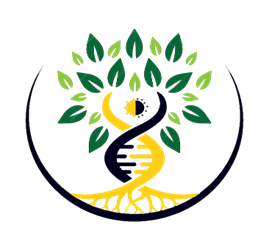A close look at Coffee
Coffee is the third most popular beverage in the world, followed by water and tea. An estimated 2.2 billion cups of coffee are prepared every day, but ever wonder where it comes from, how it gets into your cup.
There are multiple anecdotal origin stories about coffee but all of which lacks any evidence, one among which that is commonly repeated is the discovery of coffee in the 9th century by Kaldi, an Ethiopian goatherd who observed his flock getting energized after chewing on this plant, but the earliest credible evidence of coffee was from the 15th century about Ahmed al-Ghaffar in Yemen where it was first boiled down and brewed like the traditional black coffee, by the 16th century it had spread to many parts of the Middle East, Northern Africa and India, it then spread to Italy and the rest of Europe and America by the 1600, and from which the long history of coffee plays to be one of the most consumed beverage and a highly demanded commodity on the planet. The two most commonly grown coffee are C. arabica and C. robusta, although there are around 120 different varieties, arabica and their varieties dominate accounting for almost 60% of the global market, other significant varieties are bourbon, catimor, cattura, geisha, carrar, jackson, icatu, java, jember, jamican, liberica, kona, kent, mocha, maragogype, maragatura, pacas, pacamera, mundo novo, sl-28, ruiru, sagada, sl-34, sumatra, typica, timor, tanzania peaberry etc, and they are further available in the markets as various blends, roasts, aging, caffeine content etc, the many flavours and notes of coffee are due to the climatic, environmental and other various factors influencing their cultivation, coffee bean today is grown in various parts of the world making for these varieties to be distinct from one another with still room for new blends to be developed.In the 2021/2022 coffee year, the global coffee production stood at 168.5 million 60-kilogram bags or around 10 million tonnes but that was due to a 1.4% decrease caused by a variety of negative meteorological conditions in a number of key origin areas, however it is expected to bounce back by 1.7% to 171.3 million bags in the upcoming year, with arabica projected to increase by 4.6% to 98.6 million bags, with the 2021 production of its variants at 94.5 million bags and robusta's groups at 74.2 million bags. South America remains the largest producer of coffee in the world with 77.5 million bags followed by Asia Pacific at 47.9 million bags, prominent coffee producing regions are the Caribbean, Africa, Central America and Mexico. The countries involved in coffee trade are Brazil, Viet Nam, Indonesia, Uganda, India, Côte d'Ivoire, Tanzania, Madagascar, DRC, Philippines, Gabon, Timor-Leste, Congo, Burundi, Liberia, PNG, Guyana, Tri. & Tobago, Ghana, Sri Lanka, CAR, Guatemala, Sierra Leone, Nigeria, Angola, Togo, Dom. Republic, Ecuador, Cameroon, Thailand, Laos, Guinea, Mexico, Zimbabwe, Angola, Cameroon, Malawi, Jamaica, Paraguay, Zambia, Haiti, Bolivia, Panama, Cuba, Yemen, Rwanda, Venezuela, El Salvador, Kenya, Costa Rica, Nicaragua, Peru, Honduras, Ethiopia, Colombia etc. In Apr 2022 the global benchmark price per pound of Mild Arabica was 265.30 US Cents and Robusta was at 103.82 US Cents.When anyone says coffee, the first thought that comes to mind is caffeine, a substance that negatively affects adenosine - A chemical that occurs naturally in your body that boosts dopamine and adrenaline, yes caffeine is addictive but that is not all, there are many other bioactive compounds etc, that have antioxidant and anti-inflammatory effects in every bean, there are a wide variety of health benefits associated with coffee, and the first is living longer, although many other factors can influence this, people who regularly consume coffee are less likely to have or help improve in certain cases, coronary heart disease, stroke, diabetes, kidney diseases, Parkinson’s disease etc, its shown to have a protective effect on the liver, it decreases breakage in DNA strands, coffee consumers are 26 percent less likely to develop colorectal cancer, it might decrease your risk of getting Alzheimer's disease or dementia etc, but as the saying goes too much of anything can be harmful, as so does coffee, too much of it can cause spikes in blood pressure, anxiety, palpitations, insomnia , migraines etc, and so moderation seems to be one of the master keys to a healthy life.

